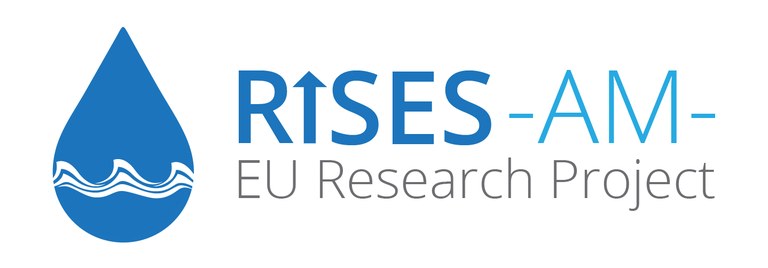
RISES-AM- – Responses to coastal climate change: Innovative Strategies for high End Scenarios -Adaptation and Mitigation-
2007 - 2013
Jan, 2013
Jan, 2016
Project Overview
Coastal areas concentrate vulnerability to climate change due to high levels of population, economic activity and ecological values. Because of that RISES-AM- addresses the economy-wide impacts of coastal systems to various types of high-end climatic scenarios (including marine and riverine variables). It encompasses analyses from global to local scales across the full range of RCPs and SSPs. It considers the still significant uncertainties in “drivers” (physical and socio-economic) and coastal system responses (e.g. land loss or uses, biological functions, economic productivity) within a hazard-vulnerability-risk approach. The emphasis is on the advantages of flexible management with novel types of coastal interventions (e.g. “green” options) within an adaptive pathway whose tipping points will be identified/quantified in the project. The assessment of impacts and adaptation deficits will be based on modelling tools that will provide a set of objective and homogeneous comparisons. The extended/improved suite of models will be applied across scales and focusing on the most vulnerable coastal archetypes such as deltas, estuaries, port cities and small islands. This will lead to a motivated analysis of the synergies and trade-offs between mitigation and adaptation, including what level and timing of climate mitigation is needed to avoid social, ecological and economic adaptation tipping points in coastal areas. We shall evaluate the direct and indirect costs of high-end scenarios (e.g. the increasing demand for safety under increasingly adverse conditions) for coasts with/without climate change and contribute to determining which policy responses are needed at the European and global levels in the context of international climate discussions. The project will finally transfer results to authorities, users and stakeholders from all economic sectors converging in coastal zones, including the climate research community dealing with more generalistic assessments.
Project Results
The main results from the project, can therefore be linked to five main axes:
- Developing innovative and effective mitigation and adaptation strategies across scales.
- Working with uncertainties in drivers and responses associated to long term projections of climate change impacts.
- Preparing a homogenized protocol for the various coastal typologies so as to improve the
resulting consistency.
- Incorporating new processes, higher resolution levels and parameterization factors often not considered.
- Producing a set of policy briefs at regional European and global scales dealing with coastal
adaptation under extreme climate scenarios.
Resources
Links
- https://www.upc.edu/ca
- https://cordis.europa.eu/project/rcn/110317/factsheet/en
- https://climate-adapt.eea.europa.eu/knowledge/adaptation-information/research-projects/rises-am/RISES-AM
Contacts
A. Sánchez-Arcilla
director.lim@upc.edu

